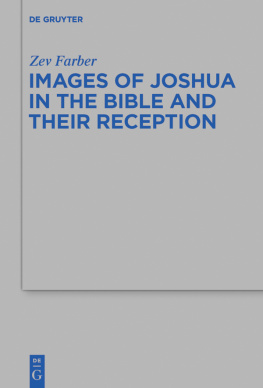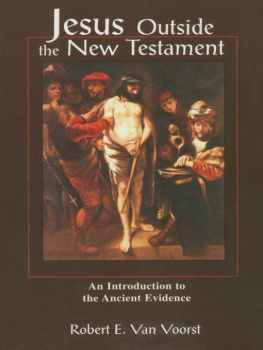Contents
Guide

Ville Mkipelto
Uncovering Ancient Editing
Beihefte zur Zeitschrift fr die alttestamentliche Wissenschaft

Edited by
John Barton, Reinhard G. Kratz, Nathan MacDonald,
Carol A. Newsom and Markus Witte
Volume 513
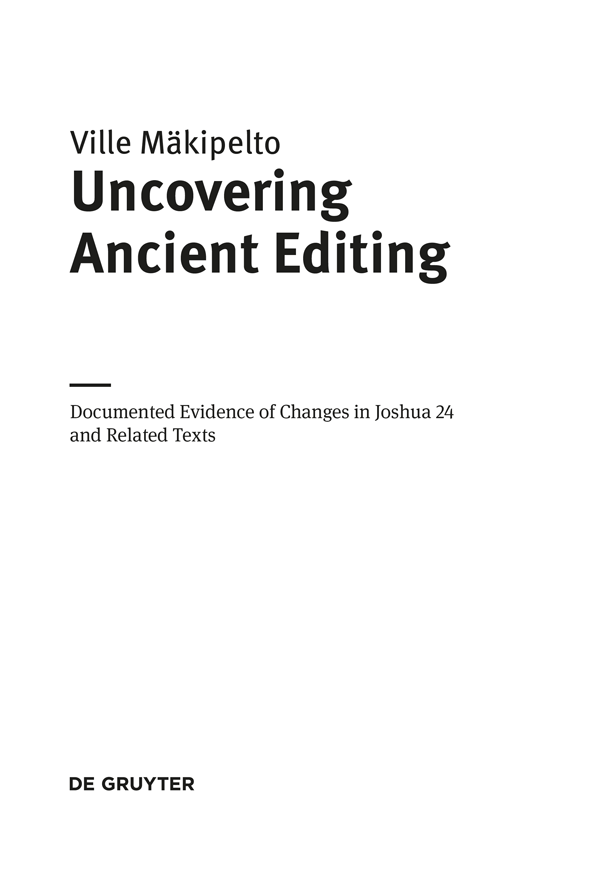
ISBN 978-3-11-059811-7
e-ISBN (PDF) 978-3-11-060224-1
e-ISBN (EPUB) 978-3-11-060011-7
ISSN 0934-2575
Library of Congress Cataloging-in-Publication Data
Names: Mkipelto, Ville, 1988 - author.
Title: Uncovering ancient editing : documented evidence of changes in Joshua 24 and related texts / Ville Makipelto.
Description: 1 [edition]. | Boston : De Gruyter, 2018. | Series: Beihefte zur Zeitschrift fr die alttestamentliche Wissenschaft ; Band 513 | Includes bibliographical references and index.
Identifiers: LCCN 2018026146 (print) | LCCN 2018029553 (ebook) | ISBN 9783110602241 (electronic Portable Document Format (pdf) | ISBN 9783110598117 (print : alk. paper) | ISBN 9783110602241 (e-book pdf) | ISBN 9783110600117 (e-book epub)
Subjects: LCSH: Bible. Joshua, XXIVCriticism, Redaction. | Bible. Joshua, XXIVCriticism, interpretation, etc. | Intertextuality in the Bible.
Classification: LCC BS1295.52 (ebook) | LCC BS1295.52 .M35 2018 (print) | DDC 222/.2066dc23
LC record available at https://lccn.loc.gov/2018026146
Bibliographic information published by the Deutsche Nationalbibliothek
The Deutsche Nationalbibliothek lists this publication in the Deutsche Nationalbibliografie; detailed bibliographic data are available in the internet at http://dnb.dnb.de.
2018 Walter de Gruyter GmbH, Berlin/Boston
www.degruyter.com
Preface
This book is a slightly revised version of my doctoral dissertation, completed at the University of Helsinki in March 2018. This work could not have been accomplished without the help, support, and inspiration of numerous people. My supervisor Dr. Juha Pakkala has constructively guided me through the research process, and introduced me to the international community of biblical scholars. The support and encouragement I received from Pakkala has been a constant companion, beginning already with my Masters thesis for this I will ever be grateful. I have also had the privilege of receiving supervision from two brilliant textual critics, Prof. Anneli Aejmelaeus and Dr. Tuukka Kauhanen. Their critical comments and input, especially concerning section 3 of this book, have been invaluable. I have learned much from my team of accomplished supervisors. As for the remaining disagreements and possible errors, I of course take full responsibility.
My research was conducted as part of the Finnish Academys Centre of Excellence Changes in Sacred Texts and Traditions (CSTT), directed by Prof. Martti Nissinen. The Centre provided full funding for my work, as well as an excellent working environment. Before the advent of my academic career there, I had never expected that research could be pursued in such a diverse and innovative community. I am very grateful for this opportunity, for Prof. Nissinen and all the members of CSTT. The members and collaborators of our team Literary Criticism in the Light of Documented Evidence Prof. Reinhard Mller, Dr. Mika Pajunen, Prof. Francis Borchardt, Prof. Urmas Nmmik, Dr. Anssi Voitila, Timo Tekoniemi, Prof. Sara Milstein, and Prof. Christoph Levin deserve special recognition for our many discussions on texts and methodology. Moreover, the University of Helsinki and its Faculty of Theology provided many other fruitful contexts for my work. The postgraduate seminar in Old Testament studies, assisted at the time by Dr. Jessi Orpana, was an especially important forum.
During my doctoral research, I spent two longer periods abroad as a visiting scholar. Prof. Mller deserves my warmest gratitude for hosting my visit of ten months at the Westflische Wilhelms-Universitt in Mnster (Germany). I also wish to thank Prof. Jan Joosten and the staff at the Oxford Centre for Hebrew and Jewish Studies for making my five months visit to Oxford (UK) possible. During these stays, I received important input from my hosts and other resident scholars, for which I am ever so grateful. Special thanks goes to Prof. Reinhard Achenbach, Dr. Sofia Salo, Dr. Jonathan Robker, Dr. John Screnock, and Jelle Verburg.
I am grateful to Dr. Seppo Sipil for frequently letting me use his personal library, and for helpful comments on my work. Along this journey, I have also visited several international conferences, where I have had many discussions with people who are too numerous to list here separately. I am very thankful to you all! A big thanks also to Dr. Christopher TenWolde for revising the English of my study.
Finally, thank you Jenna, my best friend and dear wife, for your constant love, support, and inspiration!
In Helsinki, April 2018,
Ville Mkipelto
1 Introduction
1.1 Documented Evidence of Editorial Processes
The aim of this study is to reconstruct the textual and editorial history of Josh 24 and related texts as a test case for understanding the ancient editorial processes that produced the Hebrew Bible. First, I will undertake a text-critical analysis of all the extant textual witnesses. This analysis illuminates the latest stages of the textual and editorial history. Second, I will offer an outline of the editorial history of Josh 24 that is not visible in variant versions, in the light of patterns observed in the text-critical evidence. This twofold analysis is then complemented with a collation and examination of various editorial techniques utilized by Second Temple Jewish scribes in creating Josh 24. This offers tools and guidelines for studying the editorial history of the Hebrew Bible in a more reliable way. Moreover, it offers an opportunity to discuss the methodological relationship of textual, literary, and redaction criticism. Therefore, although focusing on a single text, this study has several implications for the basic methodology of biblical criticism.
The Hebrew Bible is a product of an ancient creative scribal culture. Despite this, is it possible to uncover the editorial processes at play in the birth and transmission of the texts in the Hebrew Bible? How can a modern scholar reach methodologically sound conclusions on the complex histories behind these texts? Is the reconstruction of the earlier developmental stages of a given text viable if differing versions are not preserved in the textual witnesses?
Recently, there has been a surge of literature focusing on the editorial processes related to the Hebrew Bible in the light of documented or empirical evidence. The proponents of focusing on documented evidence of editing have rightly noted that since we possess variant versions of the same texts this is where we should start. Such variant versions include parallel passages within single textual traditions (e.g. 2 Sam 22 and Ps 18 or 2 Kgs 18 and Is 36 in the MT) and variant versions between different textual traditions (e.g. the LXX and MT versions of Jeremiah). This endeavor has been greatly fueled by the full publication of the evidence from Qumran, a newfound appreciation of the rewritten and Samaritan sources, developments in the textual criticism of the LXX and other ancient translations, and a growing awareness of the editorial processes of other texts from the ancient Near East.

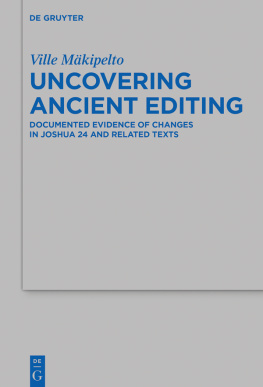
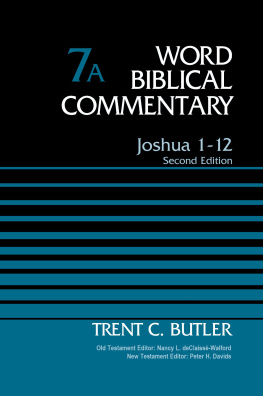
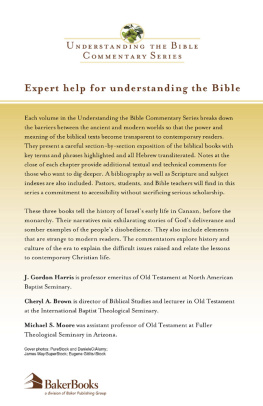
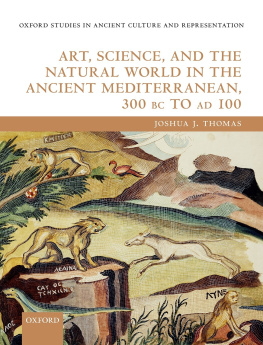
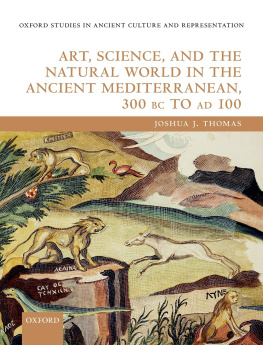
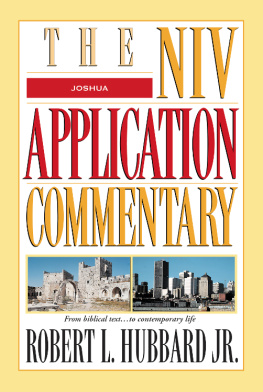

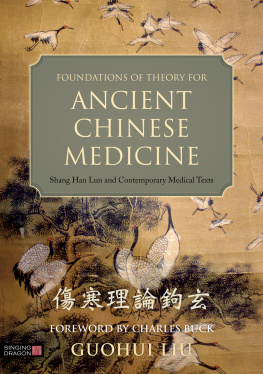
![Joshua Backfield [Joshua Backfield] - Becoming Functional](/uploads/posts/book/120483/thumbs/joshua-backfield-joshua-backfield-becoming.jpg)
